In a world where trends constantly evolve, everything old seems to eventually become new again. The realm of baby names is no exception, as some vintage girls’ names are making a remarkable comeback. These once-popular monikers, adorned by our grandmothers and great-grandmothers, are re-emerging with a renewed sense of charm and elegance. From timeless classics to forgotten gems, these are the names captivating parents-to-be once more.
Gertrude

Gertrude is definitely a vintage name, seeing most of its popularity throughout the 1880s. It originated in Germany and is said to mean “spear” and “strength” – strong words for a strong child. By the late 1950s to early ’60s, it started declining in popularity, then completely bottomed out in the ’90s.
From then on, it’s been steadily climbing in popularity. Why, exactly, isn’t clear. Even though more people are calling their girls Gertrude, it’s still not a common name. This means that kids won’t be stuck with four Gertrudes in a school class.
Esther

Unlike Gertrude, which has seen polarizing extremes of popularity, the name Esther has always been somewhat popular. It regularly held a place in the top 50 baby names for many years, then dropped to a spot in the top 100.
In 1935, the name fell out of the ranking for the first time, but has started to see more use – Ewan McGregor even used it to name his daughter. Esther comes from the Old Persian word for “star.” Part of the reason for the name’s enduring legacy is that there’s an Esther in the Old Testament, making it an ideal choice for people who want their child to have a Biblical name.
Aurora
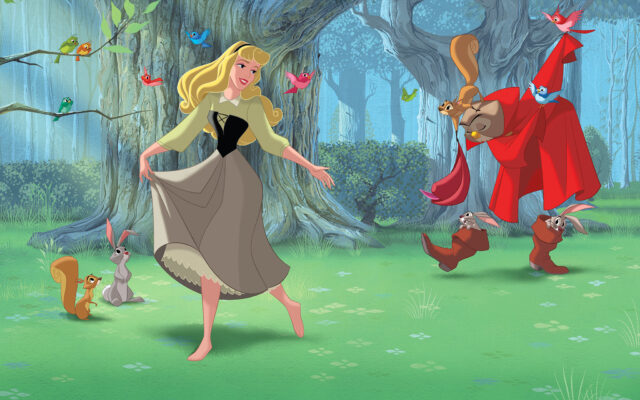
The Northern Lights, an ancient goddess and Sleeping Beauty herself are all named Aurora. Its origins are in the Latin word for “dawn,” which makes sense, as the goddess Aurora was said to announce the arrival of the sun each day to the ancient Romans.
This name has been popular for years, but modern parents have taken to it so much that it has become more popular than before. In 2022, it ranked 83 out of the top 100 names. For a while, it was really only used in English-speaking countries, but now there are Auroras all over the world, including in Norway, Switzerland, Italy and Spain.
Mildred

Another strong name, Mildred is of Anglo-Saxon origin. It’s a mix of two Old English words, “mild” and “þryð,” which mean “mild” and “power/strength,” respectively.
The name reached the height of its popularity in 1912, when it was ranked the sixth most popular girl’s name in the United States. It stayed near the top of the list until 1920, when it quickly dropped in favor. As of 2022, Mildred is slowly climbing back up the charts, and could make a great choice for parents who want a strong name, with cute nicknames like “Millie.”
Beulah
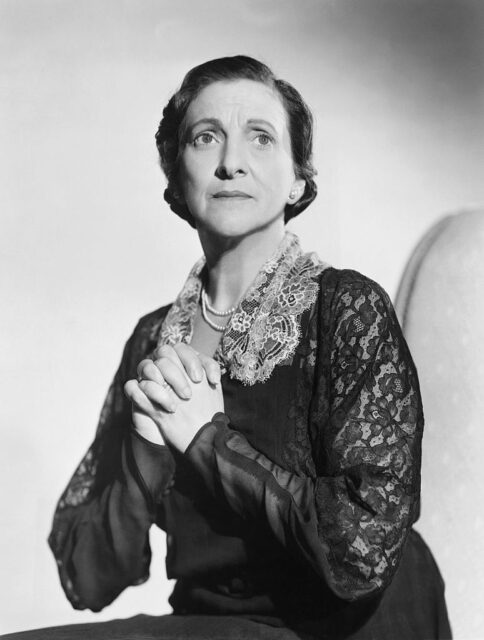
For parents wanting a Biblical name, Beulah is another great choice. It’s of Hebrew origin, and was used in the Book of Isaiah as an attribute of the land of Israel. It is translated to mean “married” or “espoused.”
The name has seen a steady increase in popularity in recent years, but did experience a sharp dip in 2022, although it’s unclear as to why. Maybe 2023 will be the year it continues its comeback.
Myrtle
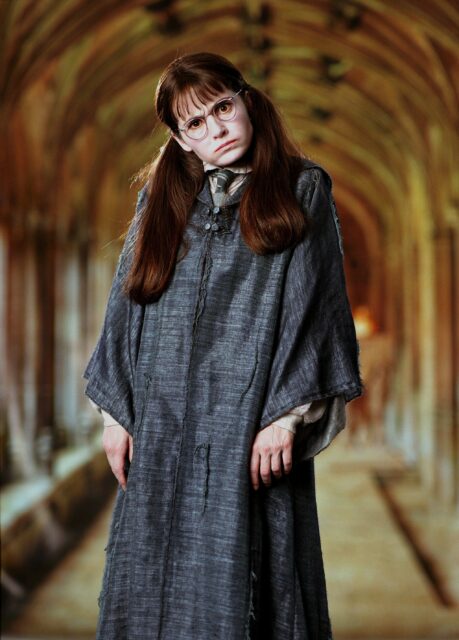
Many parents-to-be seem to enjoy nature or plant names for their children. If you like the appeal of this, but also want to choose something vintage, look no further than Myrtle. The girl’s name is the same as an evergreen shrub known to treat a range of medical problems, from skin inflammation to respiratory problems.
Myrtle stayed consistently popular for about 100 years, slowly declining in popularity around the mid-1960s. Beginning in 2013, it started making a comeback. The most likely reason for its return to popularity is “Moaning Myrtle” is the name of a character in the Harry Potter series, so many fans might choose it for their children.
Ruth
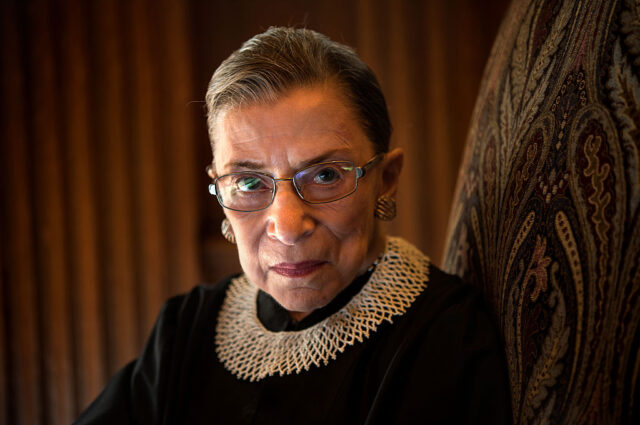
Ruth is another vintage name that’s coming back into style, likely due to the popularity of a certain US Supreme Court judge. It’s of Hebrew origin, and is said to mean “(compassionate) friend” or “friendship.” This is another great choice for people who want a Biblical moniker, as the Book of Ruth was titled after a character of the same name.
The name peaked on the baby naming charts at number eight in 1893 and stayed steady for many years. After dropping off, it saw a sharp increase in use as of 2011. It seems unlikely to be a coincidence that in the years to follow, Ruth Bader Ginsburg became a well-known household name. It seems as though many parents then – and even more after her death – honored the late judge by using her name.
Rosemary

A beautiful and timeless name, Rosemary is another derived from Latin, meaning “dew of the sea.” It was, of course, the same moniker given the delicious herb used liberally in Mediterranean cooking. Unlike many of these other vintage names, Rosemary was unpopular in the late 1880s.
It wasn’t until the beginning of the 1900s that it was used more. Still, it has ranked in the top 1,000 for 110 years. Since 2008, it’s been chosen more frequently for babies. Not only is Rosemary an attractive name, but you can make many different nicknames from it: Rose, Rosie and Mary.
Clementine
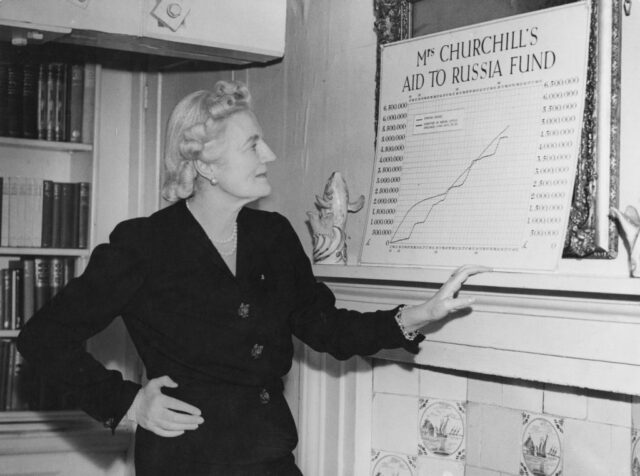
Not to be confused with the fruit, Clementine is an increasingly popular name for girls. It is of both French and Latin origin, and means “mild” or “merciful.” It was used pretty consistently from the 1800s, but between 1953 and 2014, it completely plateaued.
Perhaps it’s the unique nature of the name that has made it popular again, or maybe parents just want to have a song already written about their child. Arguably the most famous Clementine in history was British Prime Minister Winston Churchill‘s wife.
Diana

Without a doubt, the most famous Diana was the Princess of Wales, still Britain’s sweetheart so many years after her death. It’s likely thanks to her that this name remains a popular, classic choice for girls. She shared her moniker with the Roman goddess of the hunt, known for her beauty.
The Latin translation, unsurprisingly, means “divine.” For whatever reason, 1888 was not a good year for the name, as it had a sharp drop in popularity, but it has stayed more or less consistent since then.
Florence
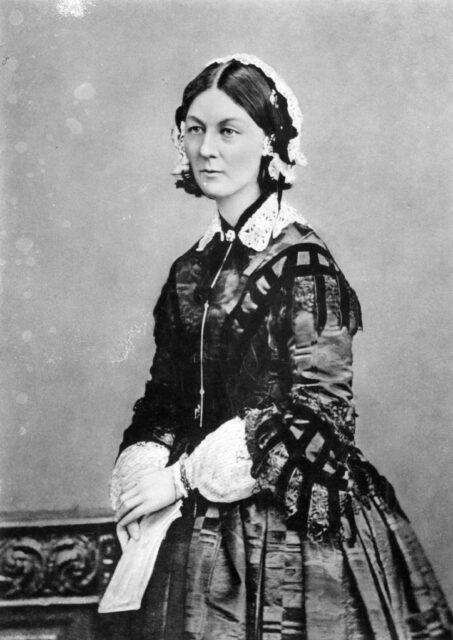
Although most commonly used for girls, Florence is actually an androgynous name of French and Latin origin, meaning “blossoming” or “to blossom.” It was used for many years, with the most famous person given the name being Florence Nightingale.
Nightingdale’s considered to be the founder of modern nursing, and her bravery while serving in the Crimean War caused a sharp uptick in people naming their children after her. It had another ongoing resurgence starting in 2009, which happened to coincide with the band Florence and the Machine releasing their debut album.
Agnes
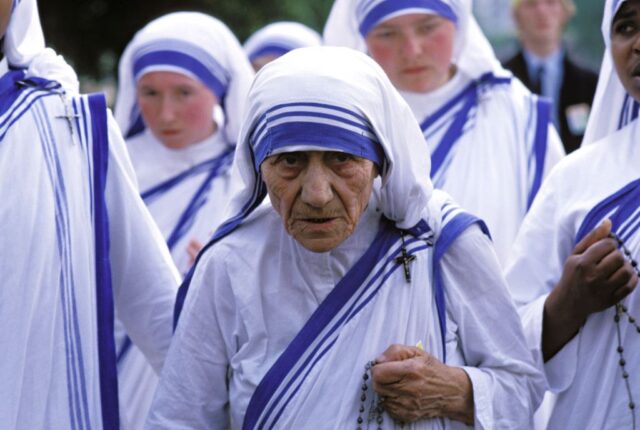
The only name of Greek origin on this list, Agnes means “pure” or “virginal.” It seems fitting, then, that the most famous Agnes was a nun. Ironically, she wasn’t even known by that name. Mother Teresa was originally born Agnes Gonxhe.
More from us: Siblings of Famous Figures That History Nearly Forgot About
This name was once extremely popular; it was the third most common for an English girl for roughly 400 years. It dropped in popularity ,but started making a comeback after the release of Despicable Me (2010), as one of the main characters shares the name. What helped in the years following this was that many different celebrities named their children Agnes.
